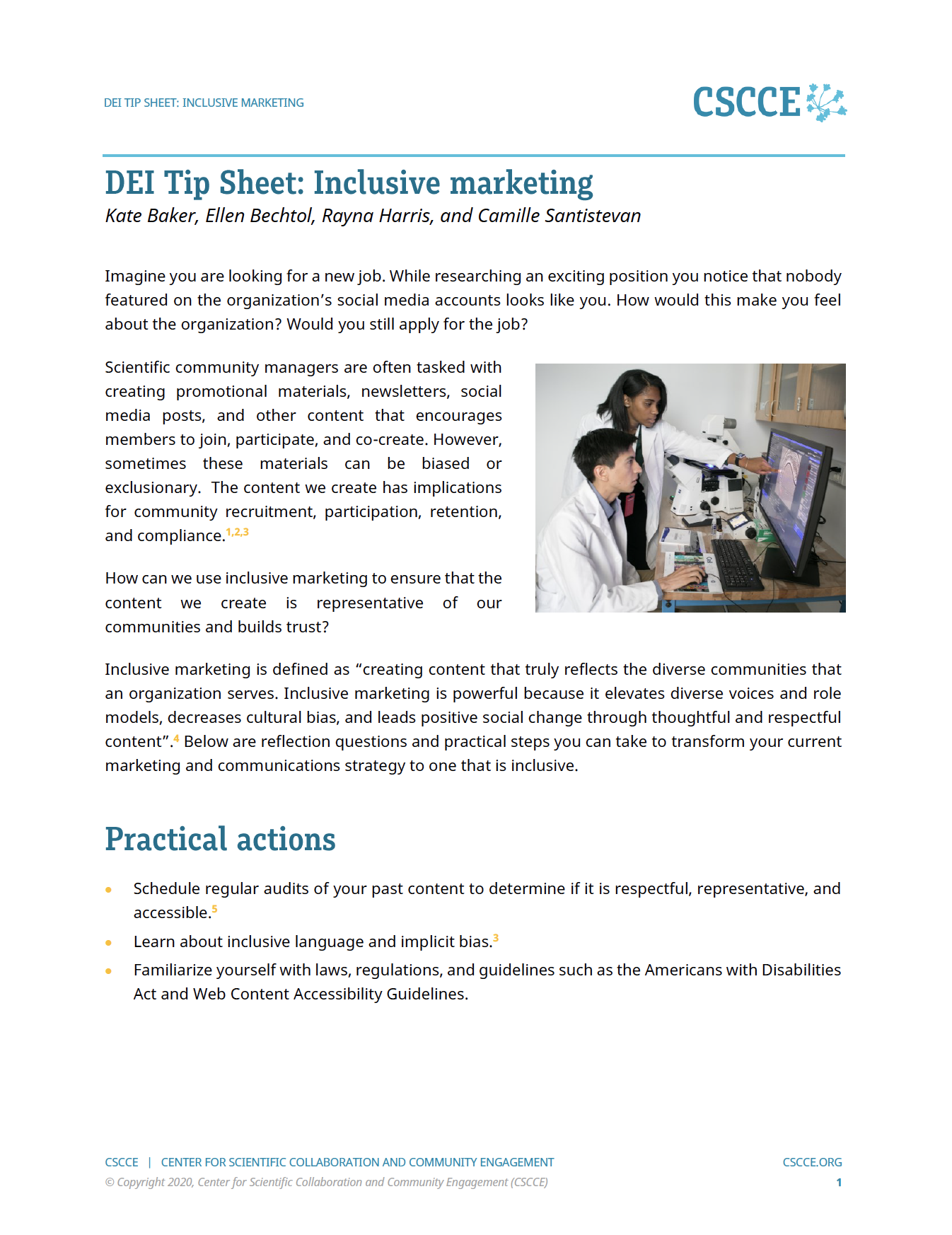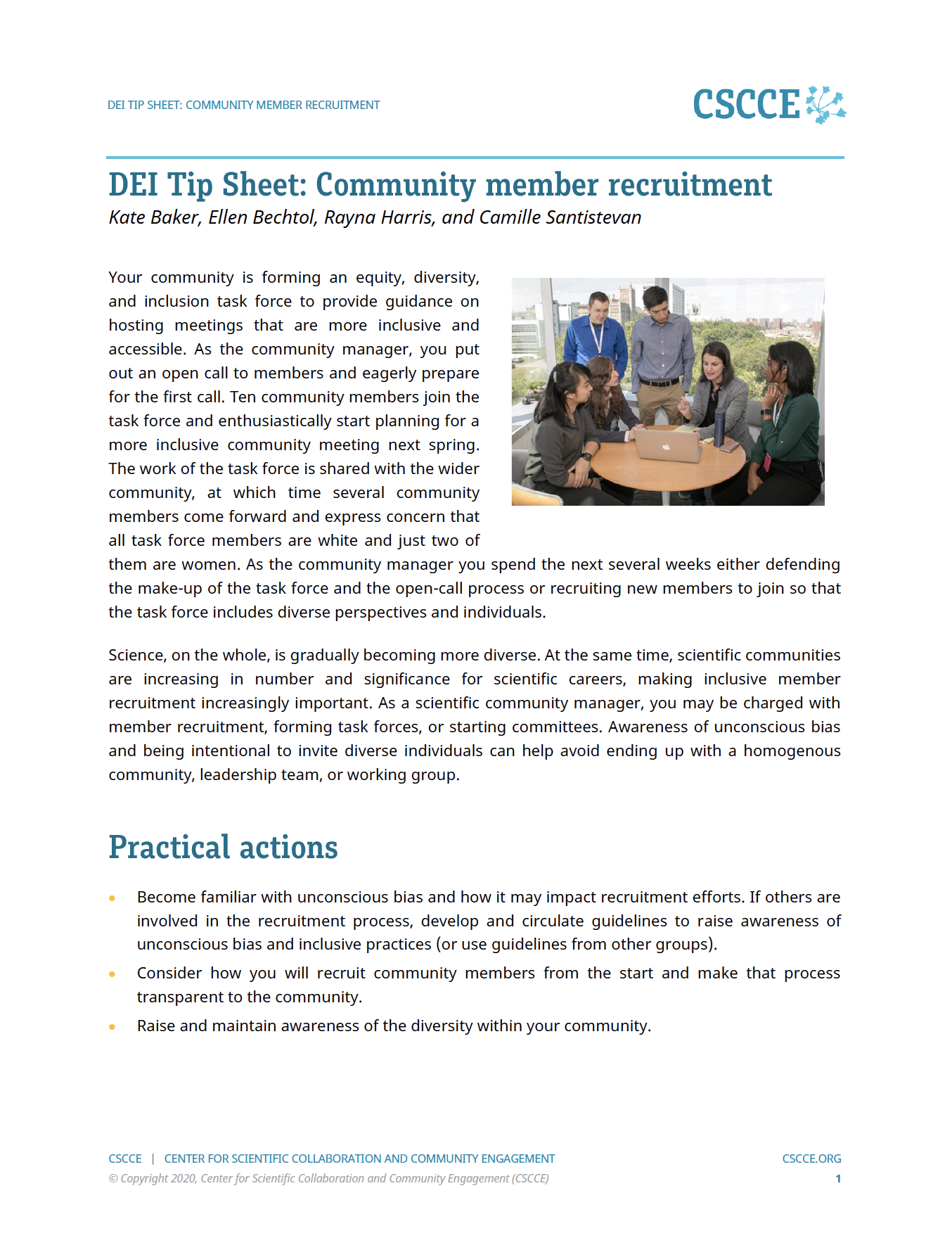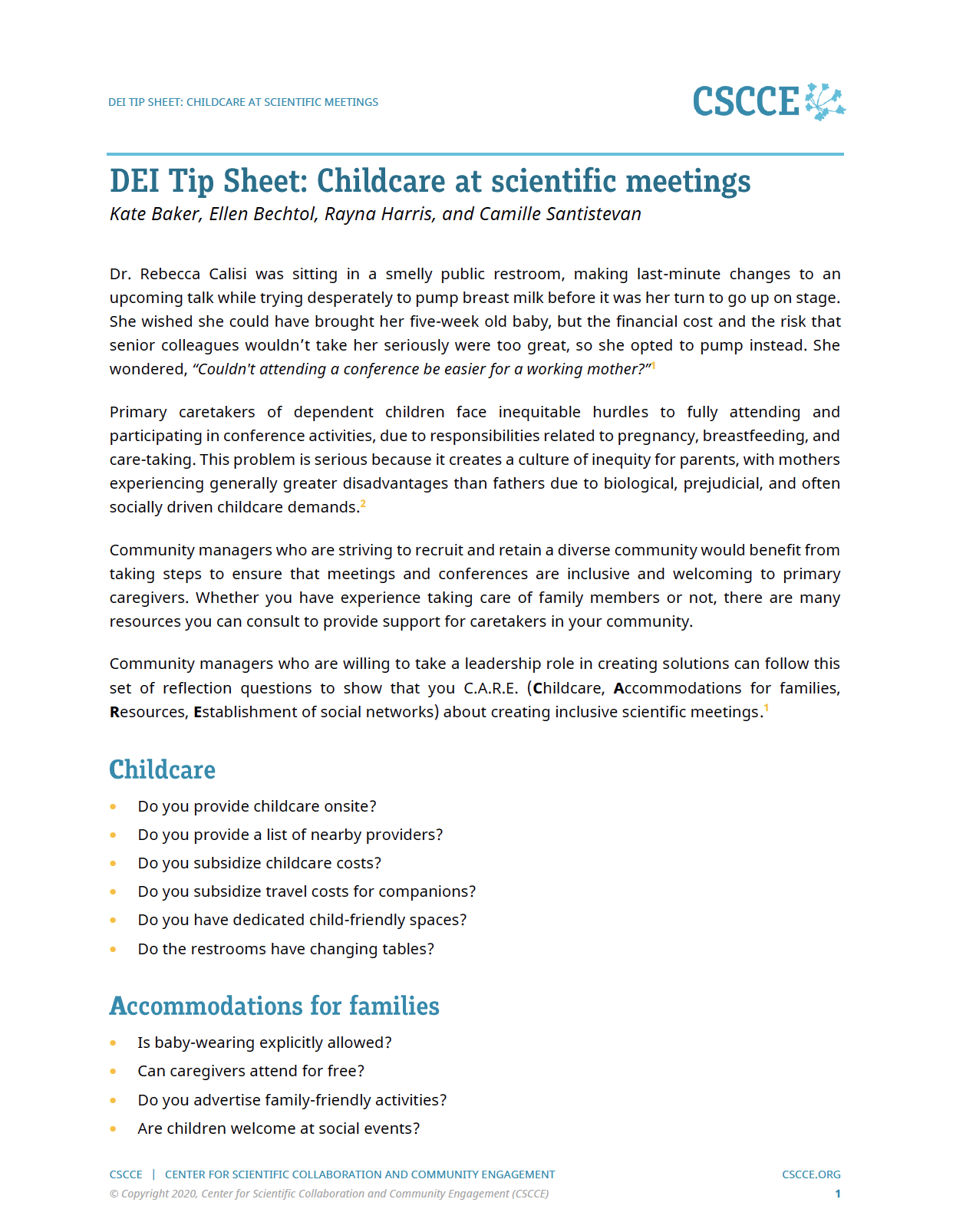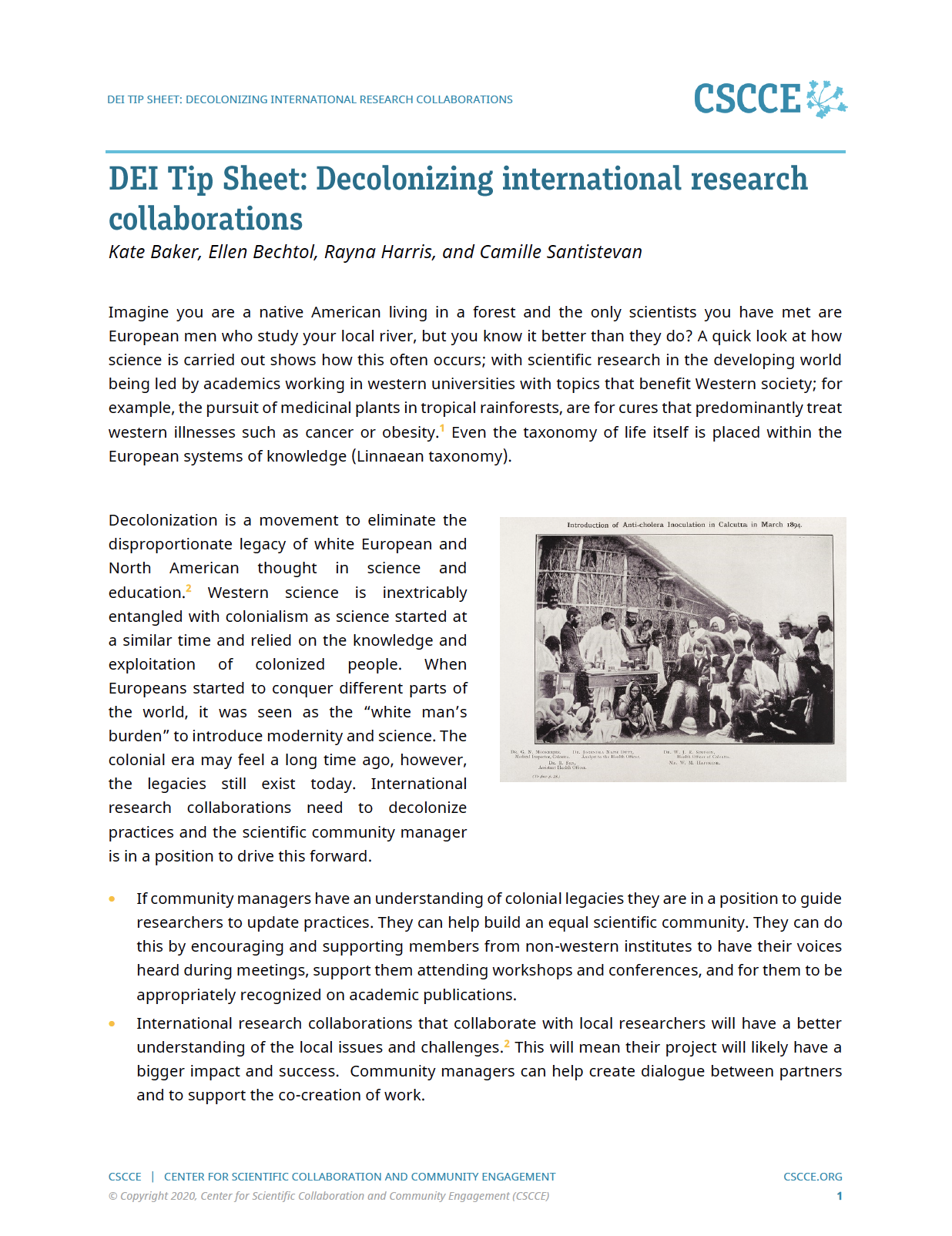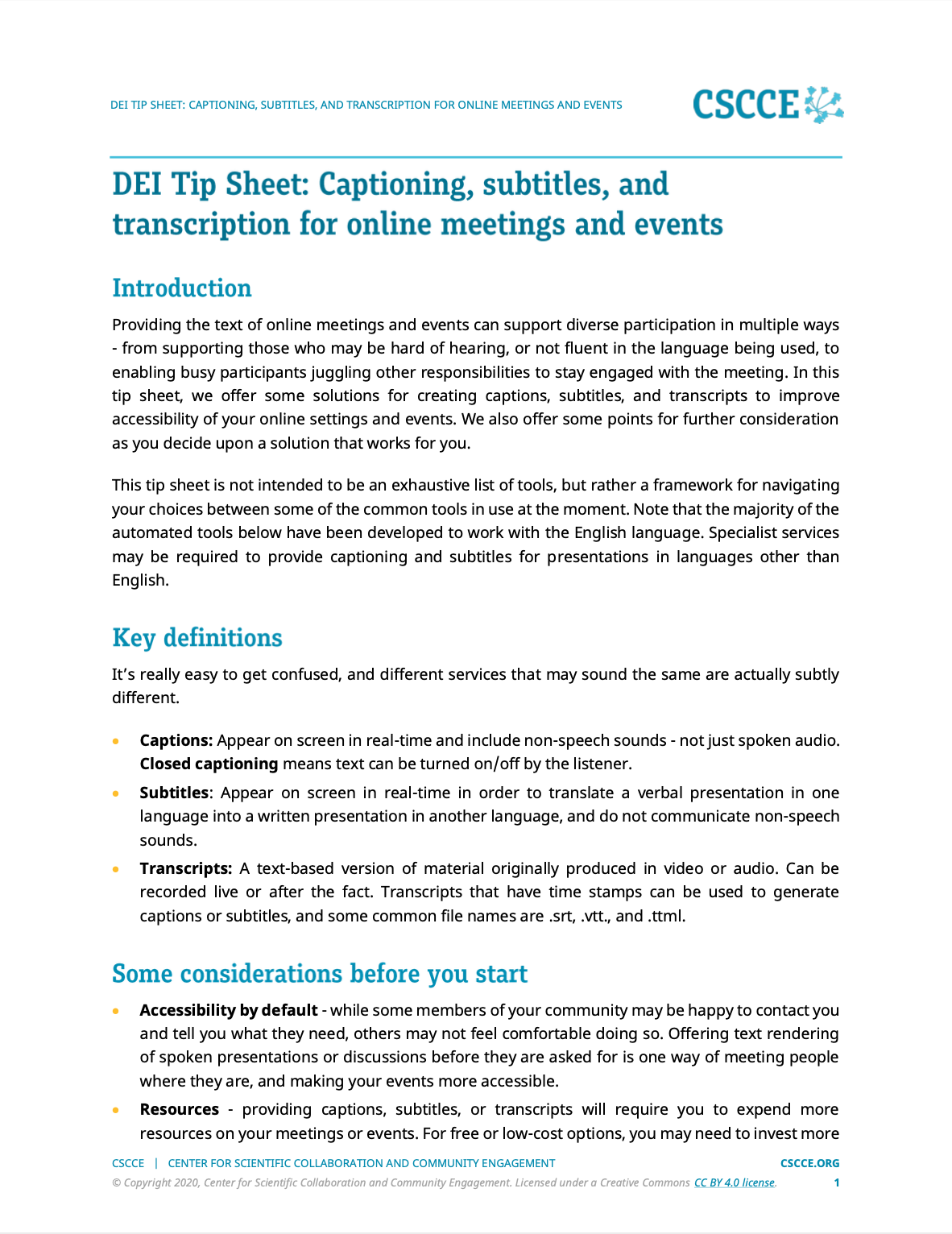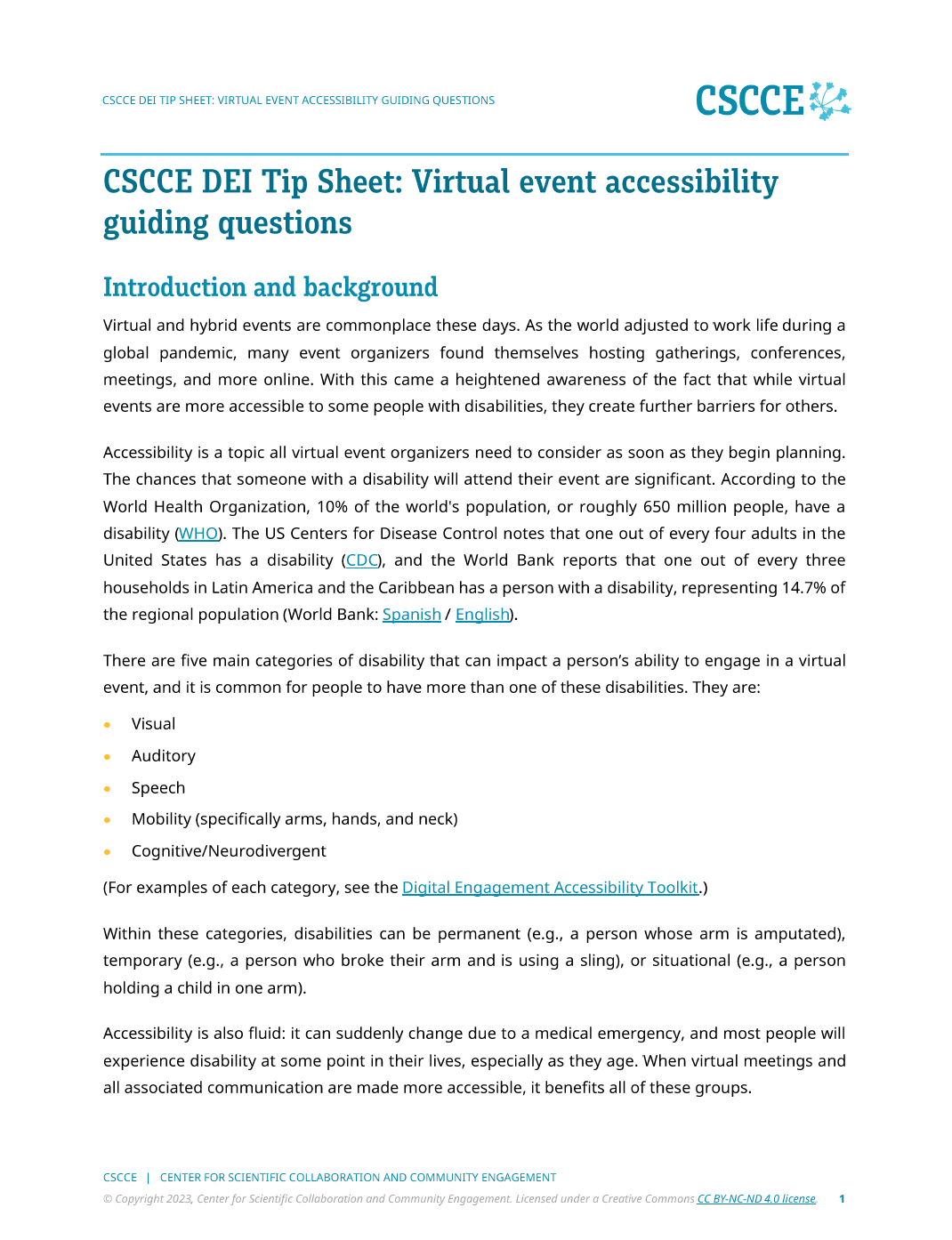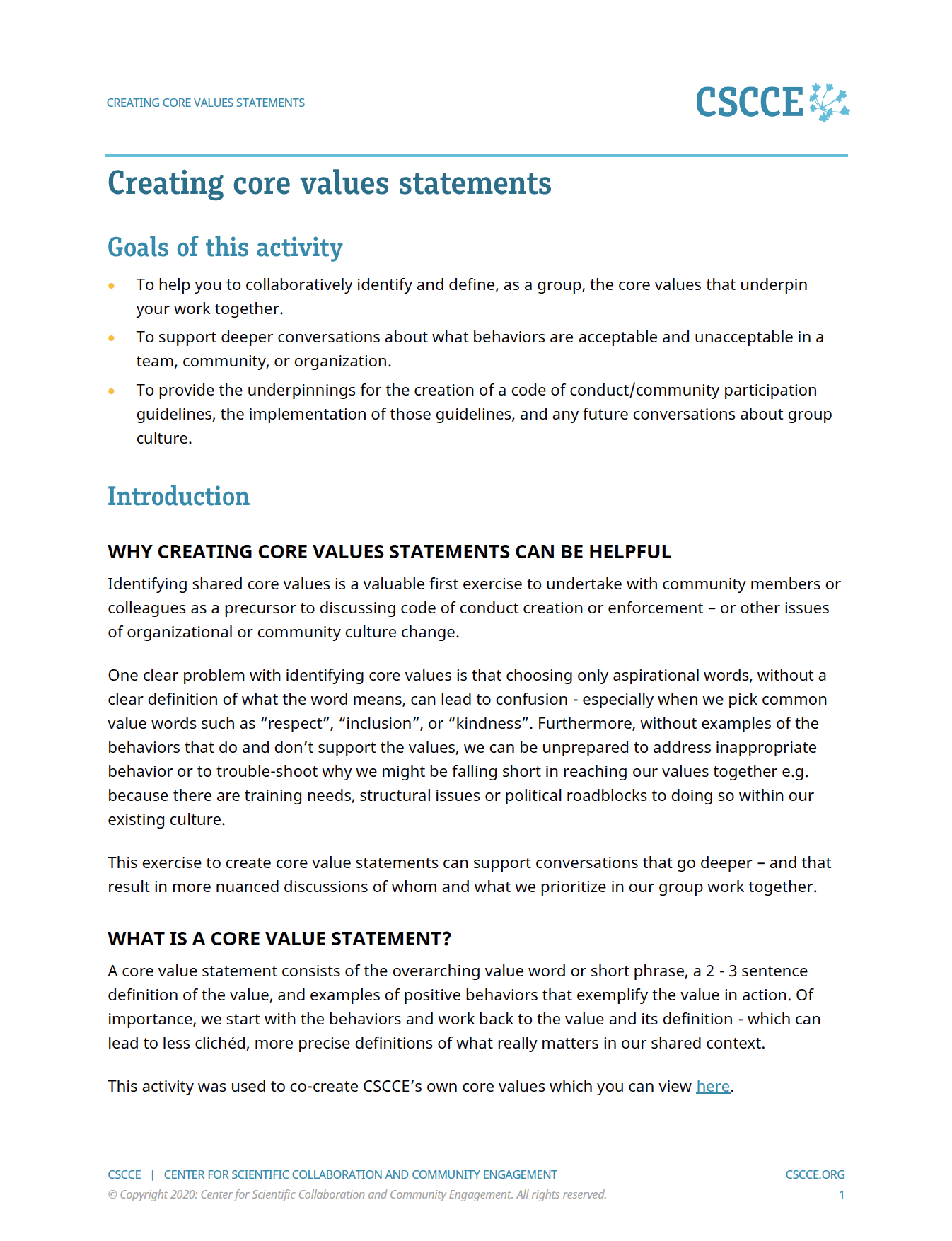Diversity, Equity and Inclusion (DEI) should be central considerations when planning and supporting any scientific community. Our resources on this topic include blog posts and tip sheets to help you to nurture more inclusive communities.
DEI blog post series
In 2018, a group of the CEFP2017 Fellows comprised of Jennifer Davison, Josh Knackert, Marsha Lucas and Rosanna Volchok created a series of blog posts focused on issues of diversity, equity and inclusion as scientific community managers.
- Community guidelines – a key component of your diversity, equity and inclusion toolbox
- Including under-represented community members in planning for diversity, equity and inclusion.
- Co-intentional communications – strategies for creating true inclusive communities.
- Resource rabbit hole – a selection of curated resources
- Curating diverse content that represents your community
- Use books, not people – and other advice from a community-building research librarian
- Address your bias, call BS and broaden your networks – an interview with Mónica Feliú-Mójer
DEI tip sheets
The DEI project team comprised of Kate Baker, Ellen Bechtol, Rayna Harris and Camille Santistevan from the CEFP2019 cohort created a first set of DEI tip sheets focused on four different areas in which scientific community managers can prioritize making their work more inclusive. The tip sheets are intended to provide starting points for further reflection and reading.
DEI tip sheet: Inclusive Marketing
by Kate Baker, Ellen Bechtol, Rayna Harris, Camille Santistevan
This DEI tip sheet helps community managers consider inclusive marketing strategies that ensure new content is representative of our communities, and builds trust within them and beyond.
DEI tip sheet: Member recruitment
by Kate Baker, Ellen Bechtol, Rayna Harris, Camille Santistevan
This DEI tip sheet helps community managers consider issues of unconscious bias, support structures, and creating diverse leadership committees as part of an inclusive member recruitment strategy.
DEI tip sheet: Childcare at scientific meetings
by Kate Baker, Ellen Bechtol, Rayna Harris, Camille Santistevan
This DEI tip sheet walks meeting organizers and community managers through considerations for providing childcare at scientific meetings with a set of reflection questions to show you C.A.R.E. (Childcare, Accommodations for families, Resources and Establishment of social networks)
DEI tip sheet: Decolonizing international research collaborations
by Kate Baker, Ellen Bechtol, Rayna Harris, Camille Santistevan
This DEI tip sheet encourages scientific community managers who support international research collaborations to consider ways in which they can help to decolonize the way research is carried out.
We are also creating additional DEI tip sheets in collaboration with members of the CSCCE community of practice to address relevant topics.
DEI Tip Sheet: Captioning, subtitles, and transcription for online meetings and events
by Katie Pratt, Camille Santistevan, Lou Woodley, Stefanie Butland, and Cass Gould van Praag
In this tip sheet, we offer some solutions for creating captions, subtitles, and transcripts to improve accessibility of your online settings and events.
DEI Tip Sheet: Virtual event accessibility guiding questions
by Rebecca Carpenter, Sara Kobilka, Katie Pratt, Maya Sanghvi, Casey Wright, Yanina Bellini Saibene, Hao Ye, and Lou Woodley
This tip sheet explores 12 guiding questions to help improve the accessibility of your next virtual event; from the very earliest planning stages, through communications and marketing, to event hosting, follow-up, and evaluation.
More about DEI
The garden metaphor for community management
by Katie Pratt and Lou Woodley
In this concept booklet, we set up the metaphor of a garden for community management, and then, in a series of essays and reflection questions, talk about supporting diversity, inclusion, and accessibility, as well as creating champions programs for your members.
Community calls
- March 2024’s community call involved a conversation about community management using the garden metaphor. You can find the reflection questions we used to facilitate the call in our concept booklet, and/or read all of the essays in the series on our blog.
- February 2023’s community call focused on creating accessible community spaces online. Sara Kobilka and Rebecca Carpenter held space for questions and discussion, and finished the call with a “show and tell” of some tools that can aid in the accessibility of slide decks, websites, Zoom calls, and written content. Recordings of their presentations are available in this recap blog post.
- July 2020’s community call included presentations from Tom Quigley, Rebecca Carpenter, and Emily Lescak, who talked about how to create and deliver accessible online events. You can watch a recording of the call in this recap blog post.
- April 2020’s community call was led by Kate Baker, Rayna Harris and Camille Santistevan of the CEFP2019 DEI project team. Read the blog post summary of the call here.
Code of conduct resources
A code of conduct and accompanying ways of enforcing it and talking about your community’s core values are important for creating an inclusive, safe and welcoming community. Our code of conduct working group reflected on the experience of creating our core values and community participation guidelines in this blog post.
Creating core values statements
by Lou Woodley and Katie Pratt
The activity described in this worksheet is designed to help you to collaboratively identify and define, as a group, the core values that underpin your work together.
Special interest group
CSCCE has a member-led special interest group focused on DEI. To request to join the group, please drop us an email: info@cscce.org
